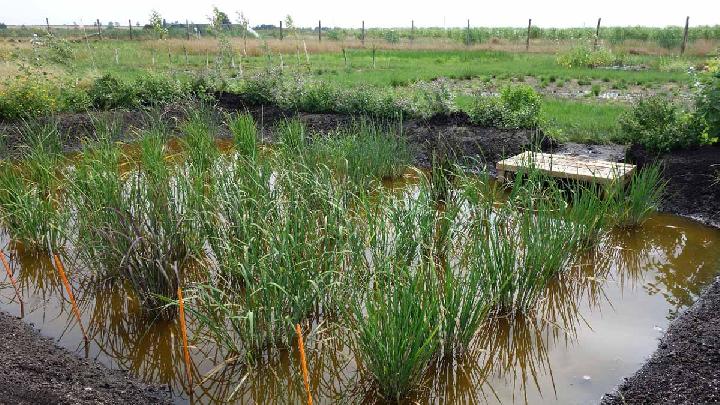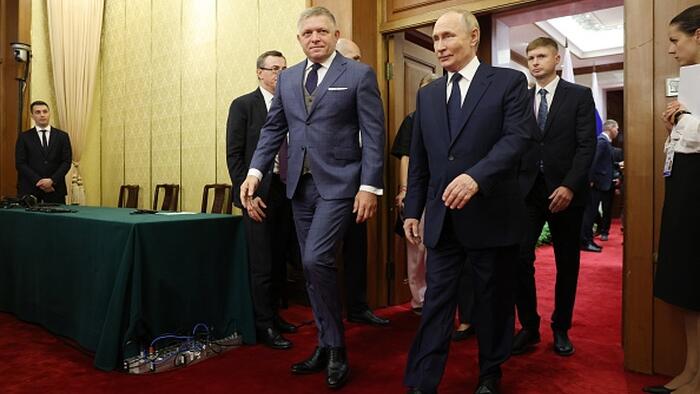Copyright tempo

TEMPO.CO, Jakarta - Nine varieties of rice have been successfully planted for the first time in history in the peatland of the Fenland District, Cambridgeshire, UK. The rice planting trial conducted by Richard Pywell, a researcher from the UK Centre for Ecology & Hydrology (UKCEH), along with local farmers, was aimed to compare the growth capacity of local crops with new crops.This research is part of the UK government's AgZero+ project, jointly funded by the Natural Environment Research Council (NERC) and the Biotechnology and Biological Sciences Research Council (BBSRC). "Our detailed measurements of the rewetted peats will include greenhouse gas emissions, carbon stocks, water use, crop yield and the impacts on nature.," Pywell said, quoted from the UKCEH report published on September 28, 2025.In the report, the research team stated that the peatland in Fenland had previously been drained for the cultivation of local food crops such as celery, potatoes, and wheat. The drying method resulted in the loss of 12 millimeters of land each year. Carbon that had been stored in the wetland for thousands of years also escaped.According to the UKCEH website, the Cambridgeshire Fens originally had about 150,000 hectares of peatland. This peatland area has been eroded due to the agricultural drainage needs. The remaining area is now only about 24,000 hectares.The UKCEH researchers and local farmers then tested the cultivation of nine rice varieties.The varieties planted included basmati rice from Louisiana, USA (Dellmati); Valle del Cauca from Colombia (Estrela); black rice (IAC 600) from Sao Paulo, Brazil; sticky rice (Osogovka) from North Macedonia; as well as medium-grain rice (Panda) from Italy. Additionally, there were also sushi rice (Koshihikari) from Fukui, Japan; semi-dwarf rice (IR 58) from Calabarzon, the Philippines; and risotto rice (Vialone Nano and Arborio) from Lazio and Lombardy in Italy.The first rice paddy in the history of Cambridgeshire Fens, England. This is part of a peatland rice trial conducted by the UK Centre for Ecology & Hydrology (UKCEH) in 2025. Photo: UK Centre for Ecology & HydrologyRice paddy field in peatland used for rice trial by the UK Centre for Ecology & Hydrology (UKCEH) in England, July 2025. Photo: UK Centre for Ecology & HydrologyThe local farmers who participated in the rice trial were the farming couple Craig and Sarah-Jane Taylor. According to the couple, Fenland has one of the most productive lands in the UK, but is vulnerable to climate change. To address this situation, local farmers must adjust the food crops they want to grow.The rice seeds for the experiment were sourced from the Agricultural Research Service of the US Department of Agriculture, then propagated in the UKCEH greenhouse in Oxfordshire. The crops were transplanted into four specially constructed paddy fields at the peatland test site. These fields were rewetted at the beginning of the summer. According to UKCEH research, the first rice harvest in the peatland was expected in October 2025.Sarah-Jane Taylor admitted to never expecting rice to grow in the UK. This trial is important to understand the large-scale impact of rewetting peat on agriculture and the environment. "Including its impact on yields and farm income, as well as the potential wider benefits for wildlife and flood prevention," she said.Citing the Wodnesprawy website, ecologist Nadine Mitschunas said no land manager has ever attempted rice cultivation in the UK. "With climate change, we now have crops that just 10 years ago seemed impossible," she said.Editor’s Choice: Oversupply Leads to Tens of Thousands of Tons of Rice Going Bad, Says Indonesian MinisterClick here to get the latest news updates from Tempo on Google News



